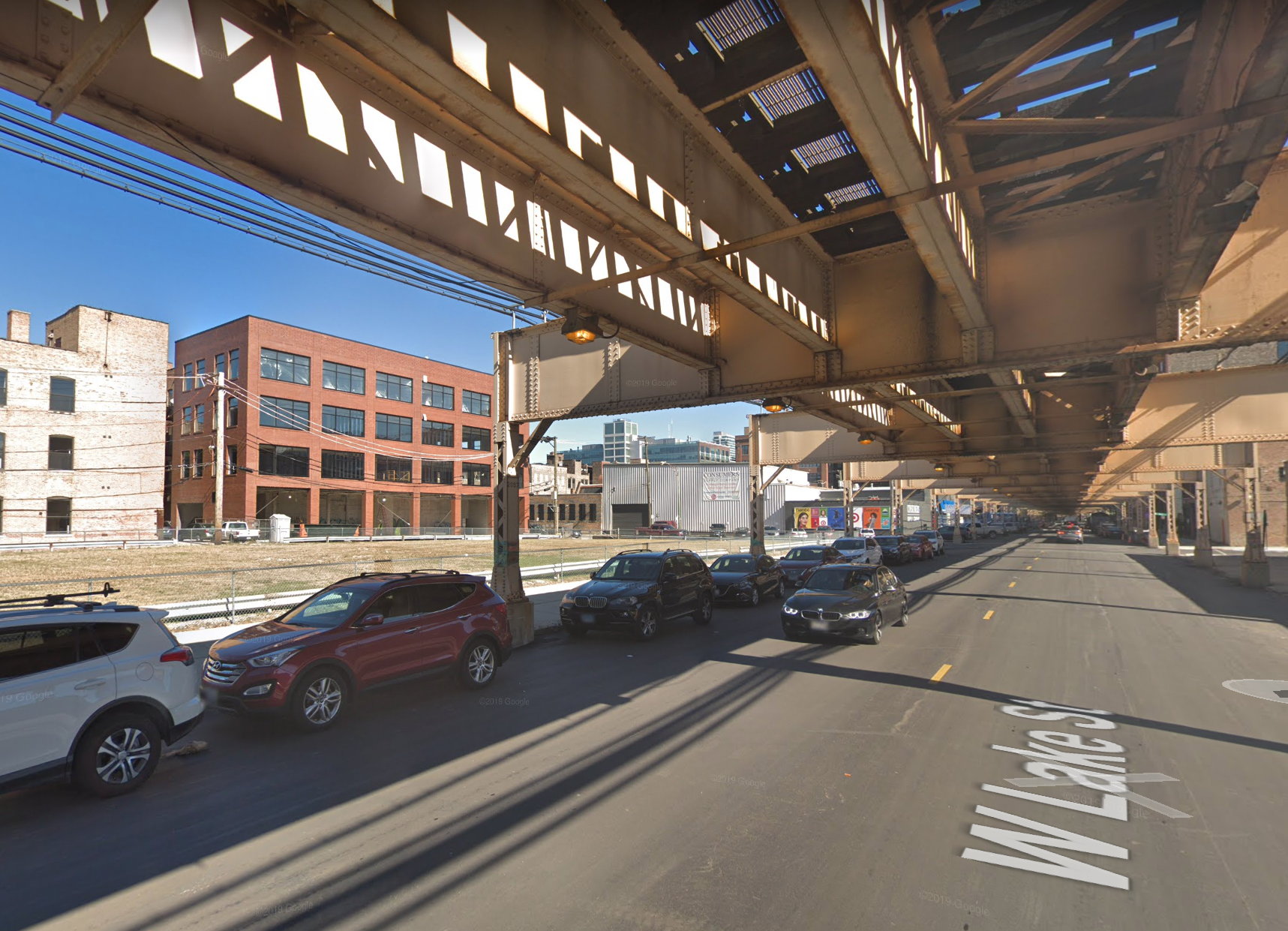The good news: In the wake of the city's decision to lifting a ban on residential development north of Lake Street in the Fulton Market district, a developer has decided to change its proposal for an office tower near the Morgan 'L' station to a residential building, which will provide 179 transit-friendly dwelling units.
The bad news: The new plan includes a whopping 290 parking spots, which would waste an opportunity to create dense, parking-lite transit-oriented development.
LG Development had originally floated a design for an 11-story office building for a vacant lot at 1150 W. Lake St., and a 33-story residential building on a site south of Lake Street, which was approved by the city in 2020, according to a report by Block Club Chicago's Mauricio Peña. The location is 0.2 miles, or about a four-minute walk, from the Morgan stop, which serves the Pink and Green lines.
LG's new proposal for the vacant lot at 1150 W. Lake is for a 20-story apartment building, about 222 feet tall, with 5,000 square feet of first-floor retail, Block Club reported. The already-approved nearby residential high-rise is still in the works, but the number of units would be reduced from 550 to 486 units. The full development will be called Amylu Collection, after Amylu Kurzawski, owner of the sausage maker ATK Foods, which was previously located on the site south of Lake. No word yet on whether Kurzawski is nicknamed the "Sausage Queen of Chicago."
Michael Ezgur, a zoning lawyer for LG told Block Club that, in addition to the city lifting the housing ban north of Lake, the change of strategy was inspired by the shaky future of office real estate since, post-pandemic, more people may be working from home in the future.
Since the 1150 W. Lake building would be located less than a quarter-mile from a rapid transit stop, essentially no on-site car parking is required thanks to Chicago's transit-oriented development ordinance. Presumably, the developer feels that extra parking is needed due to the inclusion of retail, but providing 1.62 car spaces for every housing unit is truly excessive. It will squander this valuable transit-proximate land, and contribute to the West Loop's growing traffic woes.
It just goes to show that, in addition to getting rid of parking minimums, Chicago needs to start implementing parking maximums if we're ever going to become a less car-dependent, and more walkable, bikeable, and transit-friendly city.





